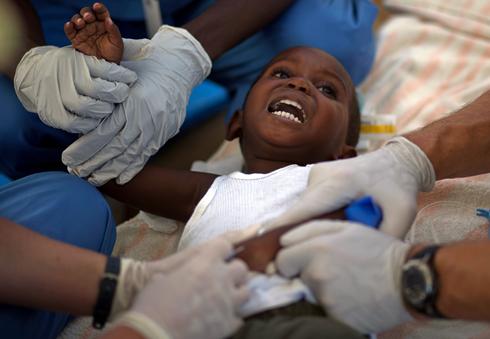
| Want to send this page or a link to a friend? Click on mail at the top of this window. |
| More Science & Technogy |
| Posted November 16, 2010 |
| Cholera outbreak likely to grip Haiti for months |
| By Marisol Bello, USA TODAY |
 |
| A child with cholera symptoms is treated Monday at a hospital in Archaie, Haiti. (AP/Ramon Espinoza) |
| Wehaitians.com, the scholarly journal of democracy and human rights |
| More from wehaitians.com |